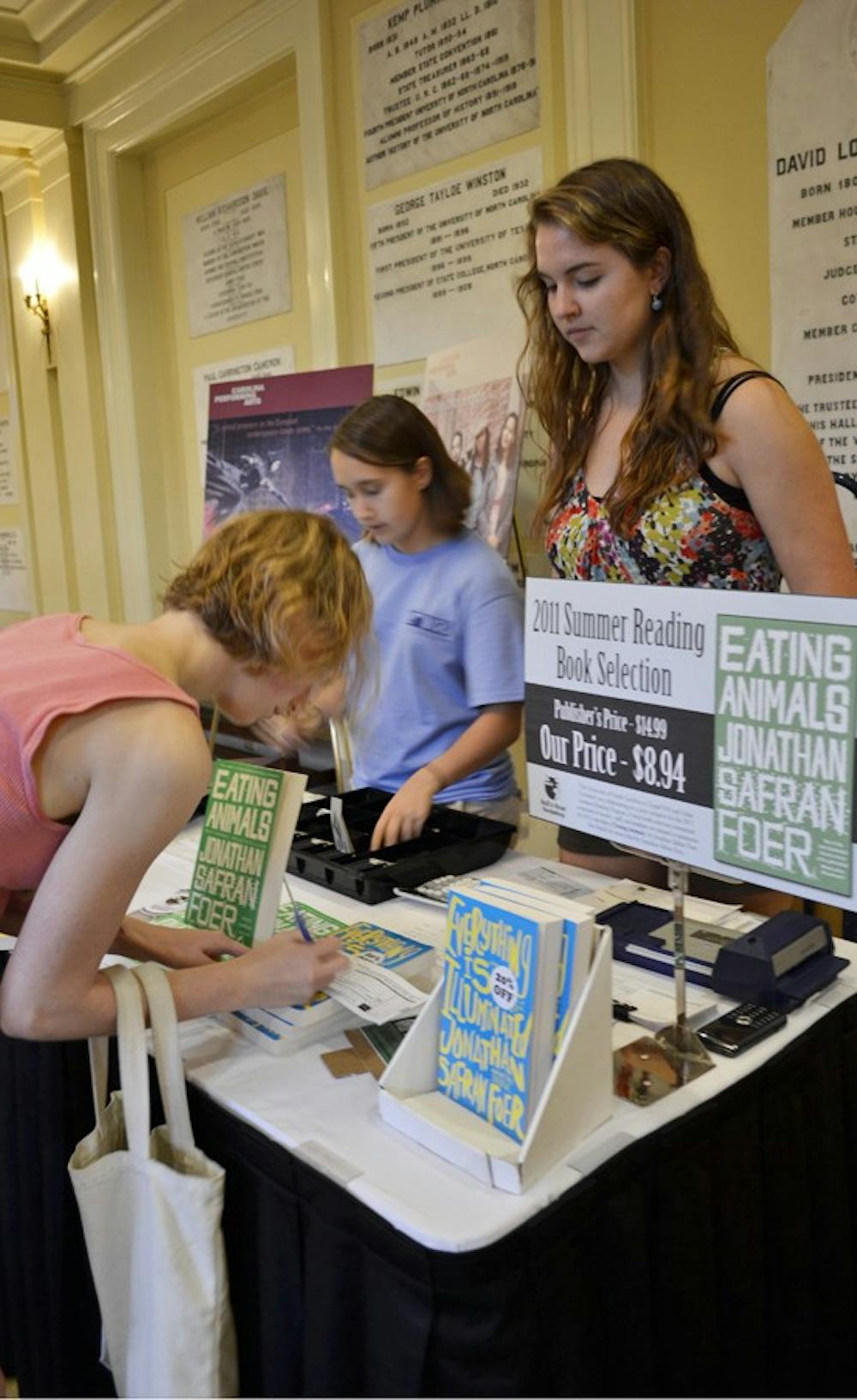The lecture helped her find ways to answer people who question her choices, she said.
“I feel like it’s not as much a dichotomy anymore as much as a spectrum,” she said.
Foer said the subject of where food comes from is difficult to talk about in an accessible way because people become defensive.
“Philosophy and information doesn’t seem to persuade people when it comes to food,” he said.
Foer said he tried to broaden the book’s audience by slowly getting into the difficult facts and avoiding the use of graphic images to tell his story. Most meat comes from factory farms, which are notorious for cruel animal conditions and overusing antibiotics, he argued.
“No one hates factory farms as much as farmers do, because it has taken from them what is good and exciting about farming,” he said.
Foer said farmers choose their profession for the variety and challenge, which factory farming eliminates by mass-producing meat.
“I also wanted to correct what I came to learn were these manipulative uses of language created by the meat industry,” he said, pointing to phrases like “happy cow” and “free-range chickens.”
“Free range isn’t even legally defined,” he said. “I could have 1,000 chickens under my chair and you could call that free range,” he said.
Justin Jornigan, a third year student of veterinary medicine at N.C. State University, said he felt the book dehumanized the entire industry and that it was too subjective.
He said great strides have been made in farming industry in the last 20 years that were not mentioned in the book.
“I just encourage people to not stop at one book,” he said.
To get the day's news and headlines in your inbox each morning, sign up for our email newsletters.
The student group Fair, Local and Organic made the lecture part of its first meeting.
Group member Meghan Robbins said the organization attended the event to help freshmen feel comfortable and knowledgeable about the variety of food issues the group addresses, which include sustainability, nutrition and workers’ rights.
Robbins said the group wanted to attend the lecture to show its support of the discussion.
She said, “The more people we can get out there, hopefully the more people can recognize that it is an important issue and it’s worth considering.”
Contact the University Editor at university@dailytarheel.com.



